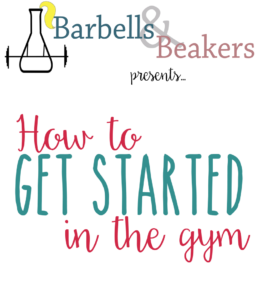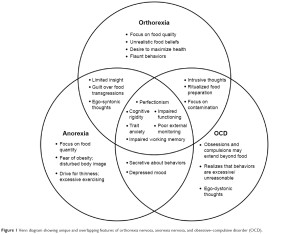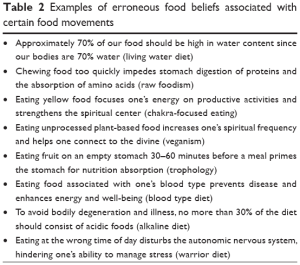
What is a supplement?
A supplement is anything you take in addition to your everyday diet. This can be anything from creatine to a pre-work out to a vitamin to fish oils. A supplement isn’t inherently a bad or good thing, it’s just something that is in addition to whatever you’re currently eating.
Why take supplements?
People with certain food allergies or food preferences often find it hard to get certain micro and macronutrients. Someone who is allergic to dairy may take calcium or vitamin C to make up for a lack of it in his or her diet. Additionally, different metabolic disorders may make it hard for someone to get their daily dose of Vitamin D.
There are less complex reasons for taking supplements. A pre-workout may be utilized for a morning workout, or for someone who feels as if they are too tired to perform without one. Protein powders are ideal for people who travel and don’t have access to a microwave and need something filling and fast. Supplements can also have certain benefits that aid in someone’s everyday life or with their performance in sports or at work.
Who regulates supplements?
This is a very important topic, because supplements fall into a gray area when it comes to regulation. The Food and Drug Administration does not test supplements for efficacy, safety or to see if the claims on the bottle are true. This is why there has been a large turn over of “diet drugs” in the last few years that claim to block fat or decrease appetite. As these products come out they can claim a certain level of efficacy or safety, but as the public becomes aware of the truth they tend to phase out. This is common and is why these supplements can be seen as unsafe.
Because of this lack of regulation it’s important to consult a doctor before starting a new supplement or vitamin. Preexisting conditions and individual intolerances can lead to bad reactions that may be documented online but not through a specific organization. One example is the use of DMAA in pre-workout stimulants and diet pills. This substance has been suspected in the deaths of several people from marathon runners to military personnel. Because the FDA does not regulate the use of this substance you should educate yourself on which products do or do not carry it, and if you’re at risk for having a reaction.
What are some popular supplements?
Protein powder may be the most popular supplement to date, though calling it a “supplement” is controversial to some people. Protein powder comes in many different types – whey, casein, egg, vegan, and plant just to name a few. Each of these types of protein powders have different digestion times, tastes and uses. Vegans, vegetarians and people that don’t enjoy eating meat would benefit from adding a protein shake in their diet regiment. Because of the wide range of flavors available for protein powders (whipped cream, chocolate, peanut butter, etc) they’re also great for cooking for people who are on a strict diet and crave something sweet. Protein powder may also be ideal to the everyday athlete for a quick pre or post workout snack. It’s easily one of the most versatile supplements on the market.
Fish oil is another popular supplement that many athletes take. Fish oil is toted for its anti-inflammatory properties that boast everything from quicker recovery post workout to increased memory. Fish oil pills are high in Omega-3 fatty oils and come in different flavors for people who don’t like the fishy aftertaste some pills have. Recent research has implicated fish oils in an increase in prostate cancer, but like most studies these results are currently being debated.
Creatine is a popular supplement used in the weight lifting community. Creatine is part of skeletal muscle and helps deliver ATP (energy) to the muscle. It’s used for increased muscle gains, decreased soreness post exercise, increased recovery, and for a myriad of other benefits. It’s one of the most tested supplements on the planet and appears to have little to no side effects. Still, there are some hypotheses that exist about its role in kidney or liver damage, or to asthmatics. If you have any of these conditions be sure to see your regular physician before starting creatine.
BCAA’s, or branched chain amino acids, are widely used for their muscle growth and recovery benefits. Branched chain amino acids are important in anabolism (growth of muscle) and helping cells get glucose (energy). They’re often consumed before, during or after a workout to prevent fatigue and help with muscle recovery. Like protein powder these come in a lot of different flavors that make them enjoyable and easy to take. They’re also available in pill form for those who don’t like flavored powders.
Lastly, “Pre Workouts” are supplements usually filled with stimulants to help provide energy before or during a workout. They utilize anything from beta-alanine to caffeine and come in many different flavors, varieties and with many different stimulants in them. Some people simply use a cup of coffee or tea as a pre workout, whereas other people prefer actual pre workout powders. Because there’s such a wide variety of products it’s crucial that you do your own research and experimentation to see how these affect you. Most pre workouts suggest taking ½ a dose and seeing how it affects you before using full dosing, or before workout out while taking them. People with heart problems or who are sensitive to caffeine should consult their physician before starting any of these because of the mixed ingredients.
These are only a few of a plethora of supplements commonly used in the fitness world. If you have any additional questions about supplements you can speak to your doctor or look them up on trusted websites such as examine.com. Avoid going to the website of the product because they’re going to toot their own horn. Also take any review comments with a grain of salt because everyone reacts differently to different products. Experiment, get samples, see what works for you…but most of all BE SAFE! Educate yourself on what you’re taking. Don’t take supplements just because someone told you to use them, look into what you’re taking and make your own decisions.



